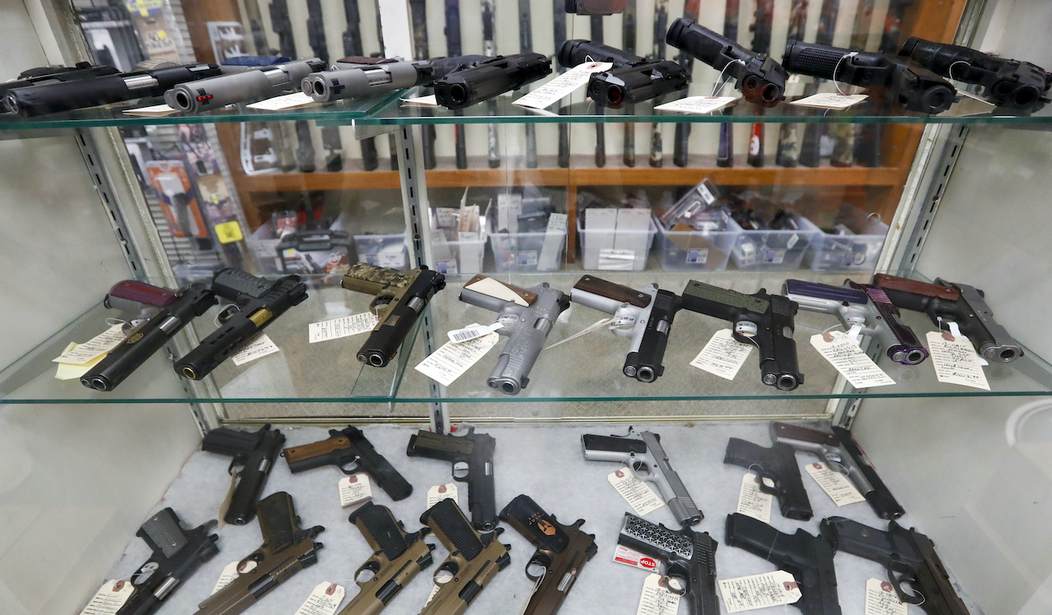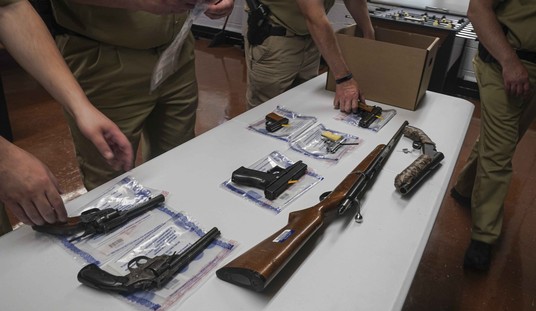It didn’t get a lot of attention at the time it was approved, but a new Colorado law that took effect on Tuesday is definitely drawing the interest of lawmakers now, as they scramble to modify the measure that limits state charges against felons found possessing a firearm.
Under federal law, any and all felony offenses automatically disqualify individuals from legally possessing a firearm, but Colorado lawmakers decided last year to depart from the federal standard and reform state law dealing with felons found possessing a gun.
Among many other changes, SB21-271 dramatically reduced the number of felony crimes for which prior conviction set off state consequences for gun possession. What used to be a one-size-fits-all policy that applied to more than 600 different types of people with prior felony convictions was whittled, through this bill, to apply only to those convicted of the few dozen felonies covered by Colorado’s Victim Rights Act.
Victim Rights Act crimes include murder, sexual assault, incest, child abuse, stalking, witness intimidation and a slew of other actions that the writers and backers of SB21-271 determined are serious enough to warrant extra punishment for illegal gun possession.
As for the remaining 550 or so felonies not covered by the Victim Rights Act, federal law still prohibits gun possession by people with previous felony convictions. Colorado can’t promise them immunity from being prosecuted on those grounds. But while the legislature can’t control what federal prosecutors do, it can control state prosecutors.
One of them, Democratic Boulder D.A. Michael Dougherty, co-chaired the panel that produced the 2021 bill. He said the panel wanted to think critically about which gun owners with previous felony convictions the state actually needs to be worried about.
“Federal law is still going to prohibit individuals with felony convictions from possessing firearms,” he said. “For us, it’s more a question of what penalties should the state utilize?”
It’s not that the state made it legal for all felons to carry a firearm. Lawmakers didn’t even try to make it easier for those convicted of a felony to have their rights restored under state or federal law. Instead, they simply chose to limit prosecutions to the serious offenses covered under the state’s Victim’s Rights Act.
Last year, this wasn’t a particularly controversial piece of legislation, at least in the state Senate, where it was approved unanimously. No Republican in the state House voted for the bill, however, and now that many Democrats are running away from anything that can be portrayed as “soft-on-crime”, there’s a new push to change the law that just took effect on Tuesday, with Republicans leading the charge in support of HB22-1257.
On top of Victim Rights Act felonies, the bill would add crimes like arson, inciting a riot, holding hostages, aggravated animal cruelty and dozens of others. In total, the bill names 110 different felonies that would trigger state prosecution for gun possession. It preserves the higher penalty set out in SB21-271 — that is, a level five felony instead of a level six felony — for people prosecuted on those grounds.
“These are very, very dangerous offenses that are underlined here,” Delta Republican state Rep. Matt Soper, a sponsor of the bill, said at a Tuesday committee hearing for his bill.
The bill eked out of committee on a 6-5 vote, and should soon be voted on by the full House of Representatives.
I can agree with the intent behind the original legislation, but I think the actual language was always going to be problematic. If the goal is to prevent individuals from being unjustly prosecuted for possessing a firearm when they’re not a dangerous person, then the original legislation should have set forth a process by which individuals have their rights restored. Instead, lawmakers delivered this patchwork quilt of legislation that excludes some crimes, but not all crimes, and maybe fewer crimes than originally intended. It’s hard for me to see how this is going to be of genuine benefit, especially given the fact that even if an individual would be exempt from state prosecution, federal officials could still file charges.
Last year’s legislation appears to me to have been an attempt for politicians to look like they were doing something substantial for criminal justice reform without thinking about the unintended consequences. And while their hearts may have been in the right place, what they came up with is unworkable and largely unimportant to those who’ve previously been convicted of felony offenses but want to be able to legally carry a firearm. Overhauling the rights restoration process would have been a much more effective way of addressing the issue, even if it would have been a heavier lift. As things stand, I don’t see the new law or its proposed “fix” being of much use to either criminal justices reformers or Second Amendment activists, even if some Colorado politicians continue to see some value in them.









Join the conversation as a VIP Member